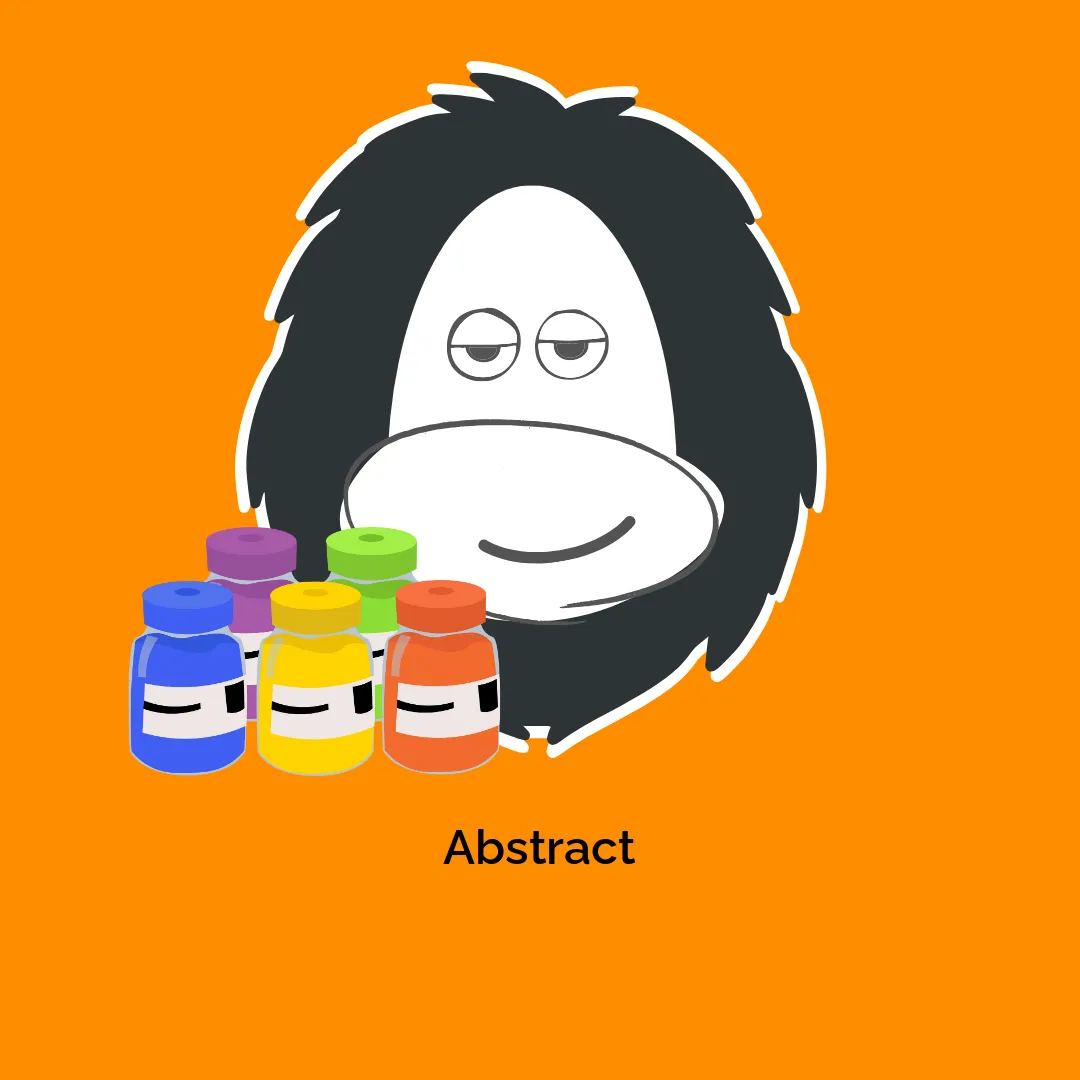Abstract: Understanding Its Essence and Importance
Abstract is a term that holds significance across various fields, from art and literature to science and business. Its core meaning symbolizes the essence of an idea, concept, or creative work without getting bogged down by excessive details. In this comprehensive exploration, we will delve into the different aspects of abstraction, its applications, and why it is essential in communication, design, and thought processes.
Development
To understand what an abstract is, we can begin by looking at its origin. The word “abstract” stems from the Latin “abstrahere,” which means to draw away. In practical terms, when we create an abstract, we distill a larger work into its most critical elements. It acts as a summary or synthesis that encapsulates the main points, allowing the audience to grasp the essential ideas without wading through the entire content.
In literature and art, abstraction takes on a unique form. An abstract painting, for example, may not represent recognizable objects or figures but encapsulates emotions, concepts, or moods through colors, lines, and shapes. Famous abstract artists, such as Wassily Kandinsky or Jackson Pollock, broke away from traditional representation to experiment with emotions and ideas conveyed through their work. Their art invites viewers to interpret and derive meaning, making abstraction a personal and often subjective experience.
The importance of abstracts extends to academic writing and scientific research. When researchers present their findings, they often begin with an abstract—a succinct summary that outlines the purpose, methods, results, and conclusions of their study. This condensed format allows readers to quickly assess the relevance of the study to their interests or research. A well-crafted abstract can significantly influence the dissemination and impact of academic work, as it provides a window into the research without overwhelming the reader with jargon and complex explanations.
Moreover, the role of an abstract is not limited to academic or artistic contexts. Businesses also employ abstracts in various forms—executive summaries being a prime example. These succinct overviews encapsulate lengthy reports or proposals, highlighting the vital information and recommendations for decision-makers. This clarity and efficiency in communication can lead to informed choices and streamlined processes in increasingly fast-paced business environments.
In the realm of technology, particularly programming and webpage design, abstraction plays a vital role as well. Programmers often use abstract data types to encapsulate complex data structures and functionalities, allowing them to focus on high-level operations without diving deep into lower-level details. This not only enhances productivity but also averts errors by minimizing complexity.
Another noteworthy aspect of abstraction is its psychological implications. Cognitive psychology suggests that abstraction is a natural part of human thinking processes. It enables individuals to categorize and simplify information, making it manageable. For instance, when we think of ‘furniture’, we don’t usually envision specific items like a sofa or a chair; rather, we abstractly conceive of a category that includes various types. This ability to generalize is crucial for problem-solving and critical thinking, allowing individuals to draw connections and insights from different contexts and experiences.
Abstract concepts often appear in philosophical discourse where the nature of reality, existence, and knowledge are examined. Theoretical frameworks often begin with abstract ideas that later influence practical applications. For example, in philosophical debates about morality or ethics, abstract principles such as ‘justice’ or ‘freedom’ can lead to a rich discussion about their implications in real-world scenarios. Theoretical ethics—like utilitarianism or deontological ethics—are steeped in abstract reasoning, which then translates to concrete moral dilemmas we face daily.
Even in the tech industry, the drive toward minimalism in web design can be seen as an inclination toward abstraction. User interface (UI) and user experience (UX) design often prioritize clarity and simplicity. Abstracting complex functionalities into intuitive design features is crucial in maintaining user engagement and satisfaction. Simplified design elements allow users to focus on key functionalities without being distracted by unnecessary details, enhancing the overall user experience and efficiency of interactions.
Further expanding on the significance of abstraction, it is prevalent in the fields of education and pedagogy. Teachers often employ abstraction in the classroom by simplifying complicated theories or concepts. For instance, when explaining scientific phenomena like gravity, abstract representations—like models or diagrams—can assist students in visualizing and understanding complex principles. This abstract approach fosters comprehension and encourages critical thinking, enabling learners to build upon foundational ideas and work towards more complex topics.
Additionally, marketing and branding strategies often leverage abstraction. Brands create abstract representations of their values, connecting emotionally with consumers through logos, taglines, and narratives that encapsulate their essence. This kind of abstraction transcends mere products—it creates a shared identity and experience that resonates with individuals, making the brand memorable and relatable.
In the context of digital communication and social media, abstraction is also noteworthy. The limitation of character counts in platforms like Twitter leads users to express ideas concisely, often resulting in abstract language that conveys feelings or perspectives succinctly. Memes, hashtags, and emojis often serve as abstract representations of broader sentiments, allowing users to communicate complex emotions in simplified forms.
While abstraction can enhance clarity and facilitate communication, it can also present challenges. The danger of losing critical details in the process of abstraction can lead to misunderstandings or misinterpretations. Therefore, it is essential to strike a balance where clarity is prioritized without sacrificing important nuances.
To illustrate this further, let’s consider the world of scientific abstracts. A poorly written abstract might oversimplify research findings, leading to misconceptions regarding the significance of results. Conversely, a well-crafted abstract, which provides sufficient detail while being concise, ensures that the reader gains an accurate understanding of the research’s breadth and depth. Peer review processes in academic publishing often emphasize the importance of well-structured abstracts, highlighting the pivotal role they play in scholarly communication.
Furthermore, the capability to think abstractly is an essential cognitive skill that can enhance problem-solving abilities. For instance, in mathematics, abstraction allows for the generalization of principles that apply to various problems—think of algebraic expressions versus specific numerical equations. This generalization enables students and professionals alike, to apply learned concepts across different scenarios, fostering innovation and creativity.
Lastly, there’s a rich interplay between abstraction and creativity. Abstraction allows individuals to think outside the box, challenge norms, and venture into the realms of imagination. For artists and writers, abstract concepts serve as a springboard for creative expression. By stripping away conventional representations, they can explore deeper meanings, uncover new perspectives, and engage with their audience on a more profound level. Creativity thrives in the space opened up by abstraction, as it invites exploration and encourages the venture into the unknown.
In summary, the concept of abstraction transcends various disciplines, playing a crucial role in enhancing communication, fostering creativity, and simplifying complex information. Whether in literature, art, science, or everyday interactions, abstraction allows us to distill core ideas and engage with them profoundly. As the world becomes increasingly complex, the value of clear, abstract representations will only continue to grow, enabling us to navigate through the noise and focus on what truly matters. Understanding and mastering the art of abstraction can enhance our learning, communication, and problem-solving abilities—making it a vital skill in both personal and professional realms. Through abstraction, we can connect the dots across diverse fields, enriching our understanding of the world and inspiring limitless creativity.
Download Abstract Themes for free
That’s right, downloading Abstract for Free on OrangoGPL is possible and completely legitimate.
Moreover, even downloading a cracked Abstract is law-abiding, because the license it is distributed under is General Public License, and this license permits the user its free modification.
This way, there’s no reason to be concerned: If you are looking to buy Abstract cheaply or, directly, to download Abstract Themes nulled and, this way, have it 100% free,, you can do it in a legal way.
Abstract GPL: A great choice for startup entrepreneurs
Call it what you like best: Discounts for Abstract, download Abstract Themes GPL, download Abstract without license or download Abstract Themes cracked.
It is 100% within the law and something necessary for every beginner entrepreneur.





Reviews
There are no reviews yet.